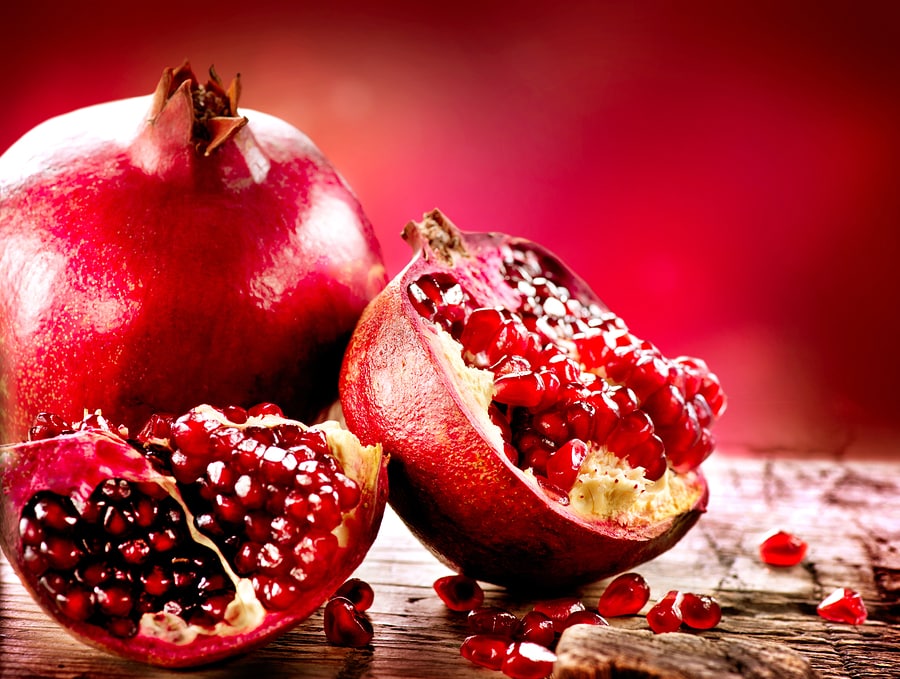Chemical compound in pomegranate may help prevent Alzheimer’s

Researchers believe that a substance found in pomegranates could help people with Alzheimer’s disease fight the condition. The substance, Punicalagin, also has potential as a way of reducing inflammation in rheumatoid arthritis and other inflammatory conditions, according to a research team based at the University of Huddersfield.
Punicalagin is thought to help prevent micrologia, the inflammation that destroys brain cells, and it’s hoped that the findings could be useful in the future as a basis for research into other conditions such as Parkinson’s disease.
Experiments revealed promising results using this particular polyphenol, which have indicated that it can help inhibit inflammation. Although there is no cure for Alzheimer’s, slowing down the spread of the associated inflammation could potentially stop the destruction of more brain cells, slowing down its development.
The new study was headed by Dr Olumayokun Olajide, who worked with co-researchers at the University of Huddersfield’s Department of Pharmacy and scientists at the University of Freiburg in Germany. The findings have been published in the journal Molecular Nutrition & Food Research.
Dr Olajide is currently working on ways to turn the natural compound into some form of drug, but it’s undoubtedly good news for people interested in finding a natural way to slow down the progression of their condition. Most of the effective anti-oxidant compounds are found in the outer skin of the pomegranate, and although the exact amount of Punicalagin that would be needed to have an effect is still unclear, Dr Olajide has pointed out that some 100 per cent pomegranate juice products also contain around 3.4 per cent Punicalagin, and added that “regular intake and regular consumption of pomegranate has a lot of health benefits – including prevention of neuro-inflammation related to dementia.”
Although the results of the recent research are still very new and haven’t been scientifically proven, this is a very promising development, which offers some hope that the pomegranate compound may actually be beneficial for treating any condition for which inflammation is a factor, including but not limited to conditions which involve neuro-inflammation of the brain, such as rheumatoid arthritis, Parkinson’s and even cancer.
Pomegranate has a reputation as being a super healthy fruit – in addition to having been used for centuries as a folk medicine it’s also claimed to be effective against many common diseases, including heart disease, high blood pressure, inflammation and some cancers, including prostate cancer.

